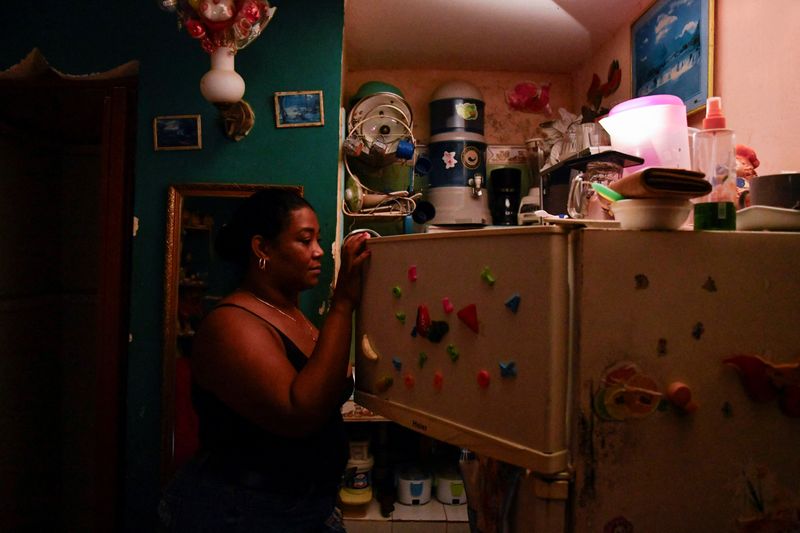By Dave Sherwood
HAVANA (Reuters) - Cuba's national grid collapsed on Friday, leaving the entire population of 10 million people without electricity and underscoring the precarious state of the Communist-run country's infrastructure and economy.
Restoration of service is under way but long-term challenges will remain.
WHY DID THE GRID COLLAPSE?
Cuba's electrical grid and oil-fired power plants are obsolete and crumbling, constructed decades ago and scarcely maintained. And because Cuba produces very little fossil fuel of its own - with limited refining capacity - it depends almost entirely on imports to assure adequate generation.
Long-time ally Venezuela slashed fuel shipments to Cuba by half this year as it struggles to assure supply at home. Allies Russia and Mexico have also cut exports to Cuba, forcing the cash-strapped government to seek far pricer fuel on the spot market.
The situation came to a head on Friday, when Cuba's largest power plant malfunctioned, joining several smaller plants already offline. Foul weather had also stalled the arrival of fuel from tanker ships offshore, starving the island's power plants. The combination prompted the entire grid to collapse.
IS THE UNITED STATES AT FAULT FOR CUBA'S ELECTRICAL WOES?
Cuba has long blamed the U.S. Cold War-era trade embargo as well as more recent sanctions by former President Donald Trump for its electricity woes, allegations repeated by Cuban President Miguel Diaz-Canel on Thursday.
The United States denies any role in the recent grid collapse.
U.S. sanctions, however, do complicate financing of fuel purchases and spare parts for Cuba. They also scare off many oil tankers, forcing Cuba and Venezuela to depend on their own obsolete fleet for transportation.
But Cuba's government has also acknowledged its own shortfalls. Rampant corruption, bureaucracy and vast inefficiencies have brought its state-run economy to its knees, leaving the government with no surplus funds to update its electrical grid.
HOW ARE THE CUBAN PEOPLE RESPONDING?
Life in Cuba has become extraordinarily difficult. Millions suffer daily without electricity in the sultry Caribbean climate, leading to soaring levels of mosquito-borne illness. Hundreds of thousands of Cubans are currently without water, in part due to power outages that cripple water supply and infrastructure.
Vast and growing shortages of food, fuel and medicine also complicate life on the island. Months of hours-long daily blackouts have wiped out precious stores of frozen foods, putting a majority in ever more precarious situations.
Frustration is nearly universal.
Under a government that does not tolerate protests, many make their unhappiness known by emigrating, contributing to a record-breaking exodus off the island since 2020.
WHAT SOLUTIONS HAS THE CUBAN GOVERNMENT PROPOSED?
Cuba's government says it has begun investing in a long-term plan to produce a growing percentage of its electricity from renewable sources, primarily solar. It is also investing to produce more crude oil domestically.
State-run media this week reported that 26 solar farms were under construction throughout the country, with the goal of new installed capacity of 1,000 megawatts, or about one-third of existing demand, in two years. Another similar project is due to be complete by 2031.
Economic crisis, fuel shortages and funding shortfalls have slowed progress, forcing it to continue to rely on its obsolete power plants in the near-term.
HAS A GRID COLLAPSE OF THIS MAGNITUDE HAPPENED BEFORE?
Yes. Following the passage of Hurricane Ian in September 2022, Cuba's grid collapsed, leaving the entire country without power for several days.

Authorities eventually re-established service, but not before protests broke out in various cities across the island, including Havana.
(This story has been refiled to clarify the sequence of events leading to the blackout in paragraph 6)